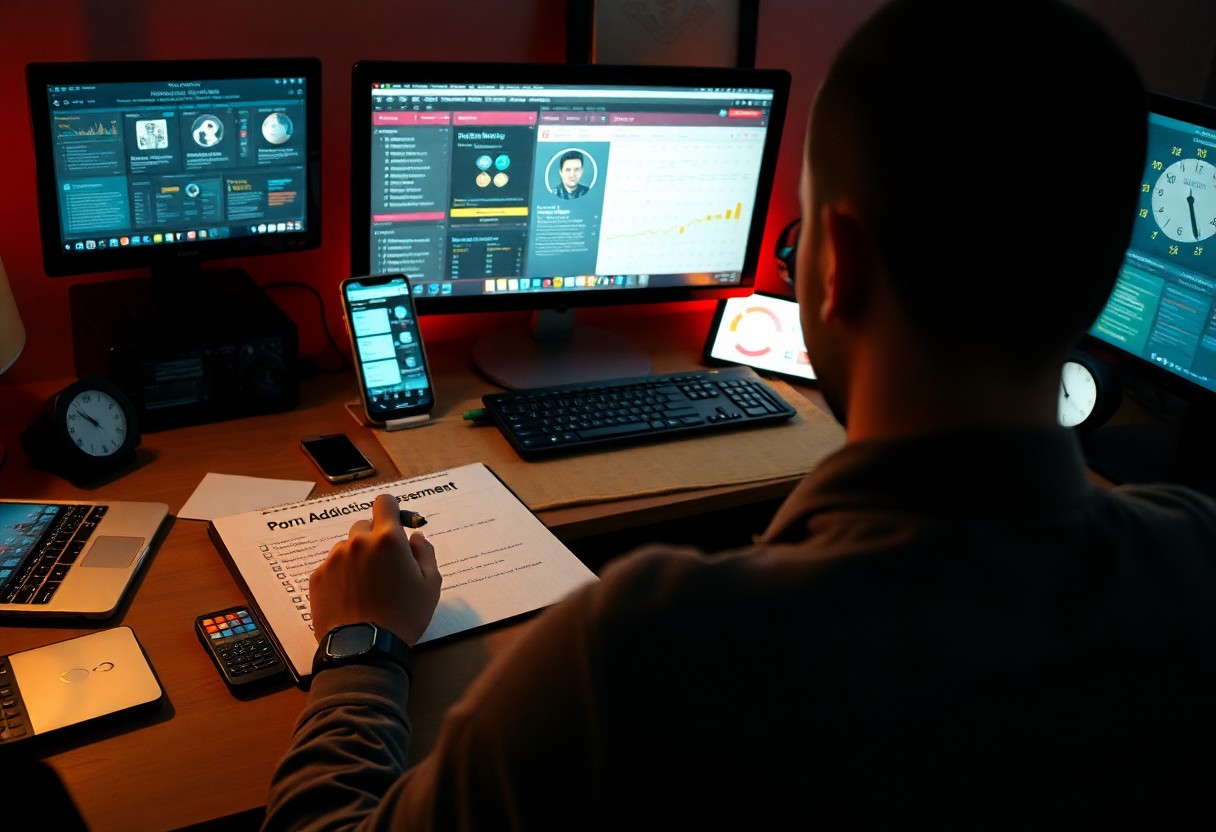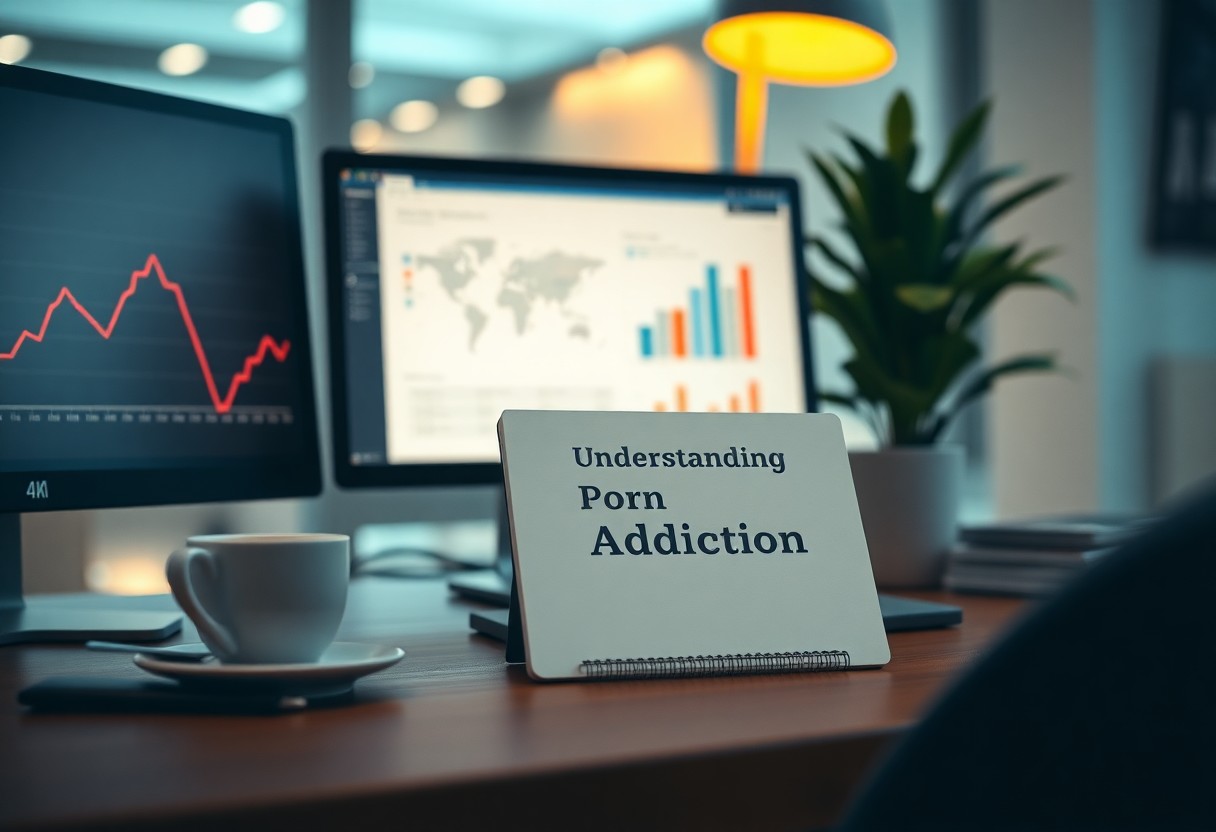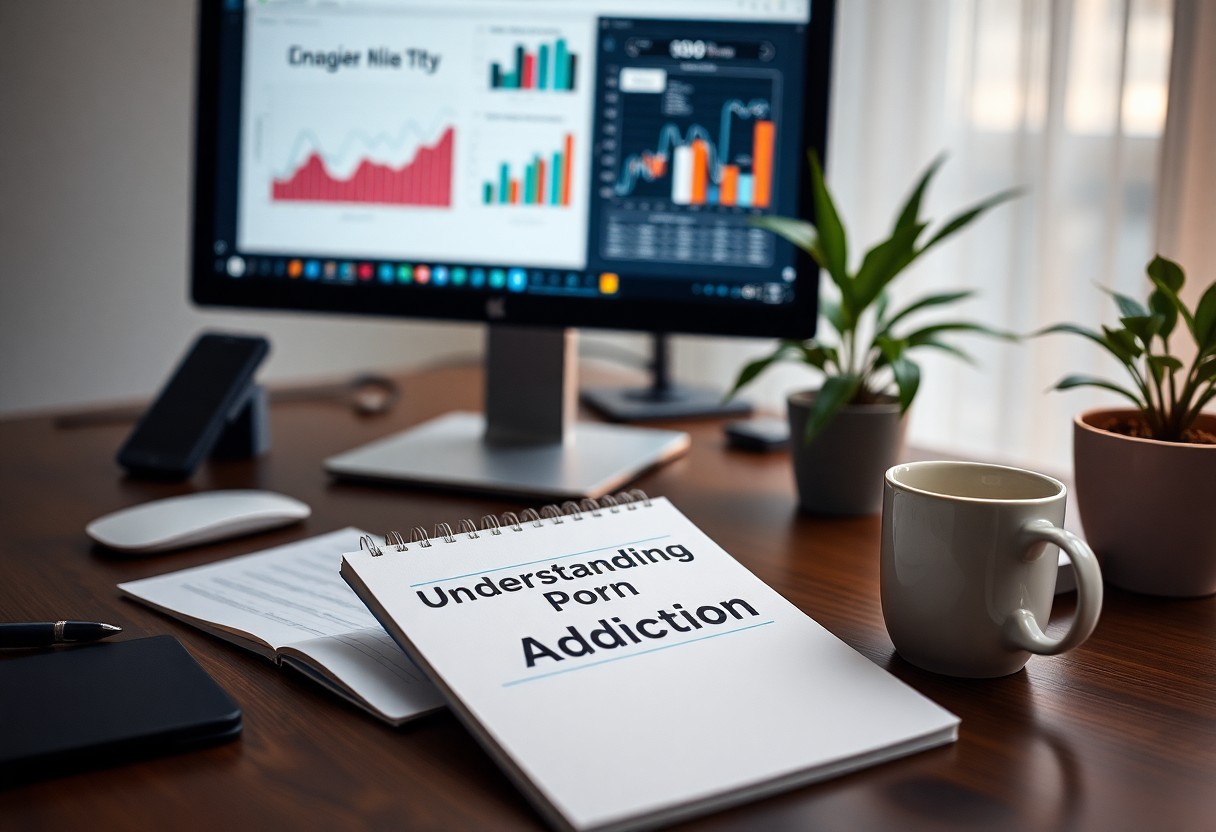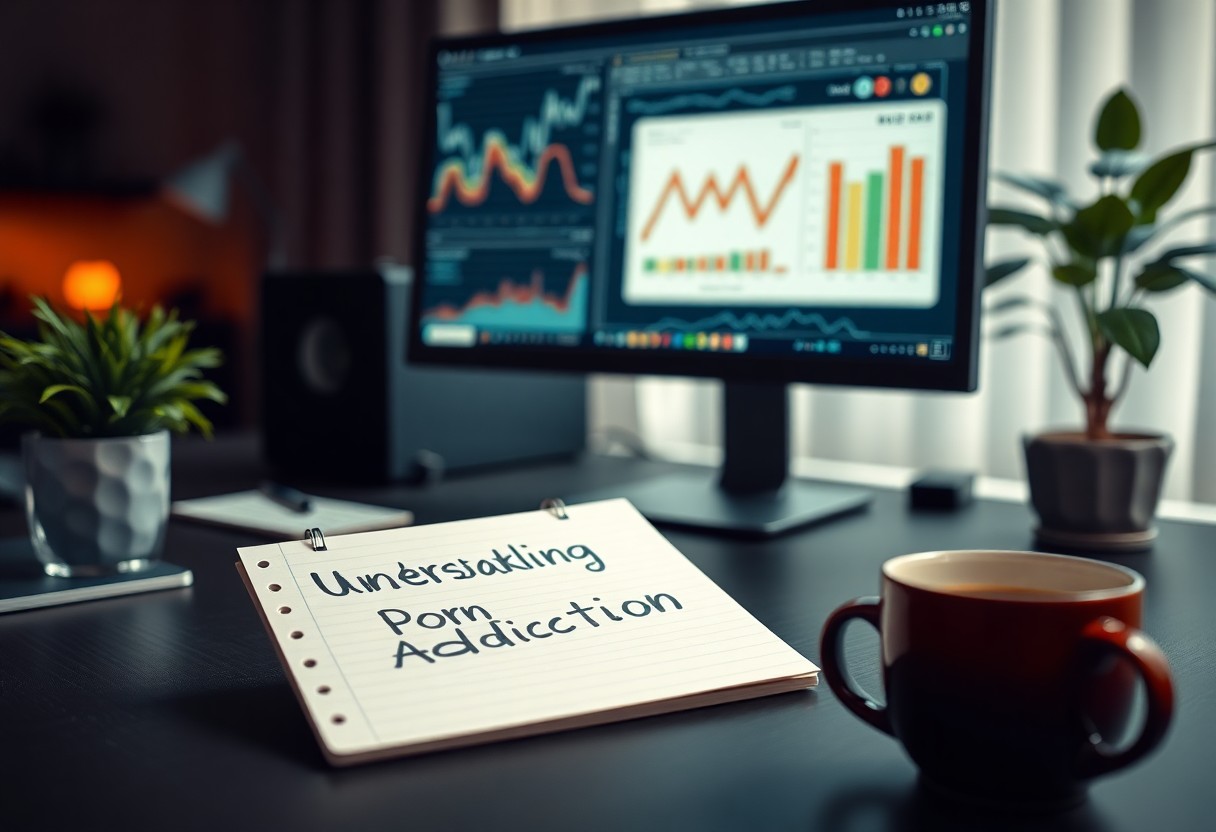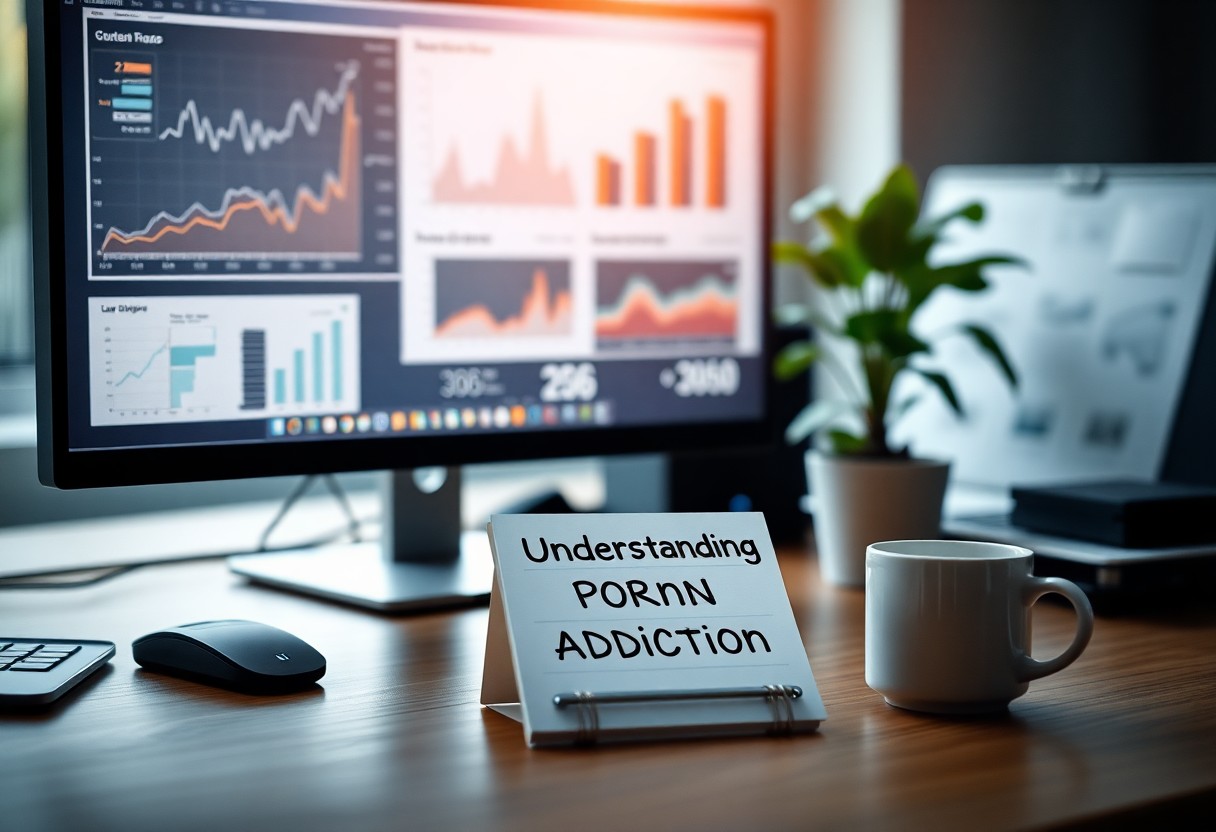Porn consumption can quickly become a problematic behavior that affects your personal life, relationships, and overall well-being. If you find yourself questioning whether your viewing habits have turned into an addiction, you’re not alone. In this blog post, we’ll explore eleven effective tools you can use to assess your relationship with porn. By utilizing these resources, you can gain clearer insights into your habits and take proactive steps toward healthier choices.
Key Takeaways:
- Understanding the signs of porn addiction is imperative for identifying the issue, which may include excessive consumption and neglecting responsibilities.
- Tools and resources available for self-assessment can help evaluate your relationship with porn.
- Regular patterns of binge-watching porn may indicate a need for intervention and reflection on your habits.
- Assessing the impact of porn on mental health and relationships is important in recognizing potential addiction symptoms.
- Seeking support from professionals or support groups can be beneficial for those struggling with porn-related challenges.
- Awareness of emotional triggers that lead to watching porn can aid in developing healthier coping mechanisms.
- Creating a plan to reduce pornography consumption can support individuals in regaining control over their habits.
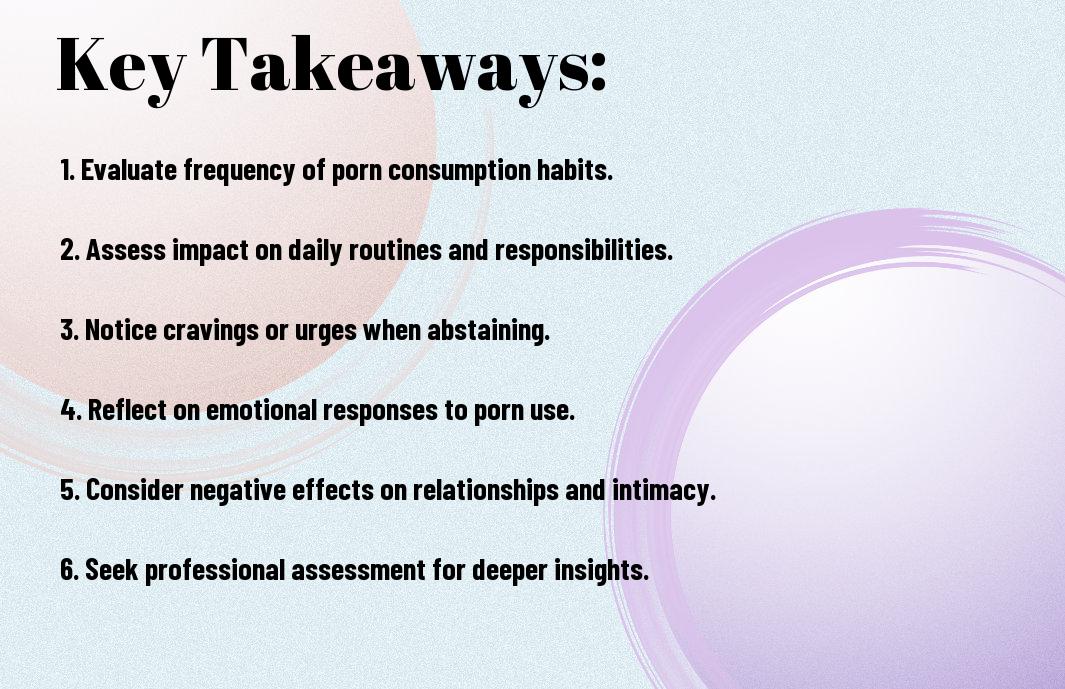
Understanding Porn Addiction
While many people engage with adult content as a normal part of their sexuality, understanding when it crosses into addiction is important. Porn addiction can disrupt your daily life, relationships, and mental wellbeing. Identifying the signs early can help you regain control and improve your quality of life.
Definition of Porn Addiction
By definition, porn addiction refers to a compulsive pattern of viewing pornography that leads to negative consequences in various aspects of your life. It is characterized by an inability to stop or reduce consumption, despite your awareness of these consequences.
Common Signs and Symptoms
The most typical signs of porn addiction include an increased tolerance, where you require more extreme content to achieve the same level of satisfaction. Other symptoms may include neglecting personal relationships, feeling irritable when unable to view porn, and spending excessive time online searching for adult material.
Addiction manifests itself through various behaviors that can significantly affect your life. You may find yourself withdrawing from social activities or relationships, prioritizing porn consumption over vital tasks. Additionally, you might use porn as a coping mechanism for stress or emotional turmoil. These patterns not only hinder personal growth but can also lead to feelings of shame and isolation.
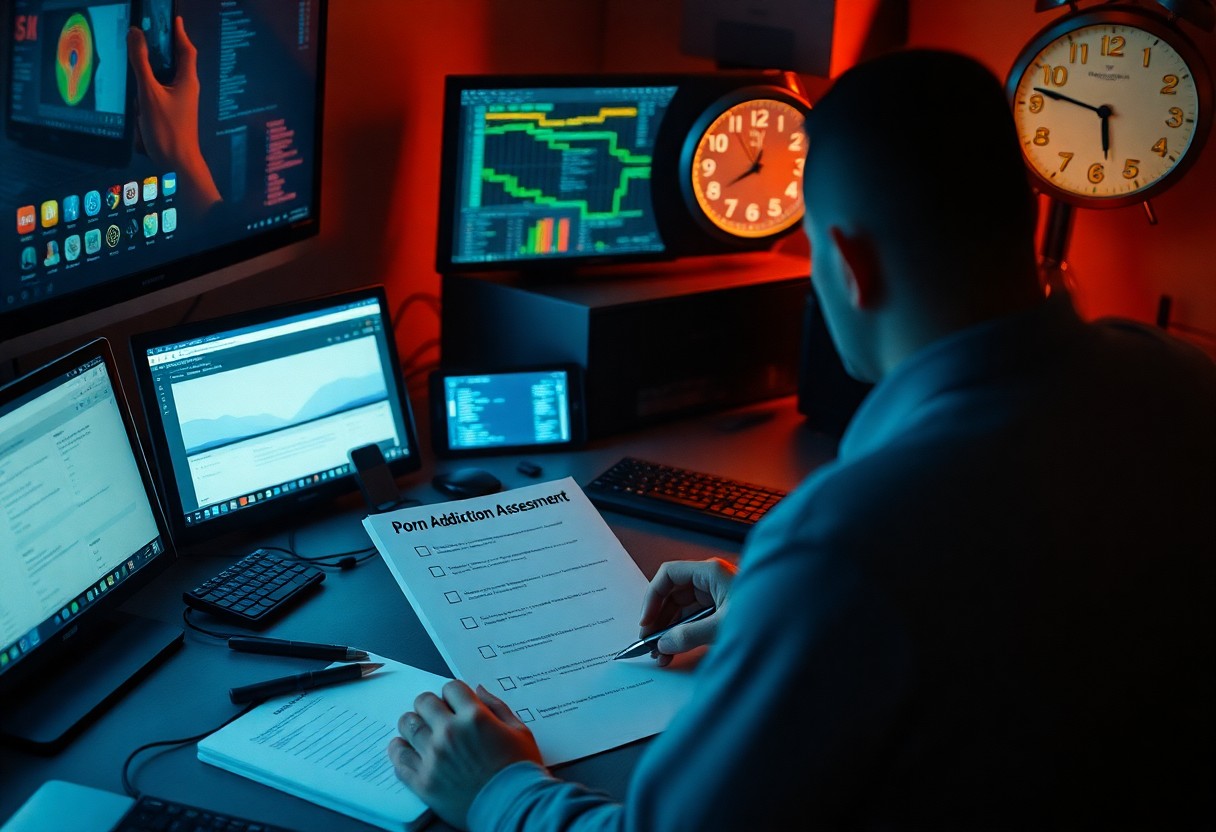
Self-Assessment Tools
It is imperative to explore self-assessment tools when evaluating your relationship with pornography. These tools can provide you with insight into your habits, behaviors, and emotional triggers surrounding porn use. By taking a proactive approach, you can better understand whether your consumption has crossed into addictive territory. The right self-assessment tool can guide you in making informed decisions about your health and well-being.
Quizzes and Questionnaires
On your journey to understanding your porn use, quizzes and questionnaires can serve as valuable instruments. Many online resources offer quick assessments that help identify patterns or problematic behaviors. These questions typically cover topics such as frequency of use, emotional responses, and impacts on your daily life, allowing you to evaluate your habits more objectively.
Journaling and Reflection Techniques
After engaging with quizzes, journaling and reflection techniques can deepen your self-awareness. Writing about your feelings and experiences related to porn use will help you uncover underlying motives that may drive your consumption. This practice allows you to process your emotions and develop a clearer picture of how this behavior affects your mental and emotional health.
Another benefit of journaling and reflection techniques is that they encourage accountability. By regularly documenting your thoughts, triggers, and experiences, you can identify patterns in your behavior that may not be apparent at first. This ongoing dialogue with yourself not only fosters self-discovery but also helps track your progress as you work toward healthier habits. Over time, these reflections can empower you to make positive changes and develop a more balanced relationship with pornography.

Professional Assessment Tools
Many individuals struggle with recognizing their relationship with pornography, and utilizing professional assessment tools can provide clarity. Engaging with resources such as QuitByHealing – beat p*rn addiction to level up your life can be an effective first step toward understanding your behaviors and finding support.
Diagnostic Interviews
For a comprehensive understanding of your situation, diagnostic interviews are conducted by trained professionals who explore your usage patterns, emotional triggers, and the impact on your daily life. These interviews facilitate a deep probe your experiences, helping you to better articulate your challenges.
Clinical Assessments
To gain a clearer picture of your habits, clinical assessments employ standardized questionnaires and psychological evaluations. These tools are designed to identify patterns of behavior, emotional responses, and potential co-occurring mental health issues that may be linked to porn consumption.
Another significant advantage of clinical assessments is their ability to provide a quantitative measure of your behaviors. By analyzing your responses, clinicians can develop tailored treatment plans that address your unique needs and circumstances. This data-driven approach not only helps in pinpointing the severity of the addiction but also fosters a more informed recovery journey.
Behavioral Tracking
After gaining insight into your habits, behavioral tracking can significantly aid you in assessing your relationship with porn. This method allows you to monitor your usage patterns, triggers, and cravings, offering a comprehensive view of how and when porn impacts your daily life. By employing specific tools or apps dedicated to tracking these behaviors, you can make informed decisions about your consumption and take steps towards healthier patterns.
Monitoring Usage Patterns
Among the most effective ways to understand your porn usage is by monitoring your patterns over time. You can track how often you engage with porn and the contexts in which you typically do so. Keeping a record can help you recognize if there are particular times when you feel compelled to watch porn, leading to greater self-awareness and control over your habits.
Identifying Triggers and Cravings
Between various daily activities, specific situations or emotions may prompt cravings for pornographic content. Detecting these triggers can be beneficial as it allows you to develop healthier coping mechanisms. Identifying what prompts these cravings means you can find alternative ways to address the feelings or circumstances driving your desire to engage with porn.
With consistent tracking, you can analyze patterns related to your triggers and cravings, helping you pinpoint emotional states or situations that lead to the urge to watch porn. This understanding can become your first step toward managing and potentially eliminating these urges. By recognizing these influences, you can better equip yourself with strategies to cope without relying on porn, leading to healthier habits and improved well-being.
Support Systems
Despite the challenges of facing a porn addiction alone, having a strong support system can make a significant difference in your recovery journey. Surrounding yourself with understanding individuals, whether through professional help or peer support, will give you the encouragement needed to overcome this struggle. Finding the right support can empower you to make lasting changes in your life.
Therapy and Counseling Options
Behind every effective recovery plan lies the importance of therapy and counseling. Engaging with a qualified therapist can help you explore the underlying issues contributing to your addiction. Professionals can provide you with personalized strategies and coping mechanisms, facilitating a deeper understanding of your relationship with pornography.
Support Groups and Communities
Against isolation, support groups and communities provide a safe space for you to share your experiences and learn from others. These gatherings foster a sense of belonging and understanding, allowing you to connect with individuals who face similar challenges. The shared experiences within these groups can often help you feel less alone in your journey.
Communities focused on porn addiction support often offer various resources, including regular meetings, online forums, and educational materials. Being part of such a community encourages open dialogue about struggles and successes, allowing you to gain insights from others’ experiences. Engaging with a support group not only helps in recovery but also promotes accountability, making it easier for you to commit to your goals.

Coping Strategies
To navigate the challenges of a porn addiction, developing effective coping strategies is imperative. These strategies can help you regain control over your habits, reduce urges, and promote a healthier lifestyle. By implementing these tools, you can foster a sense of well-being and make strides toward overcoming your addiction.
Healthy Alternatives to Pornography
Above all, finding healthy alternatives to pornography is vital for redirecting your focus and energy. Engage in activities such as exercise, reading, or pursuing hobbies that interest you. These alternatives not only distract you but help you develop new passions, thereby enriching your life and reducing the temptation to seek out pornographic material.
Mindfulness and Self-Control Techniques
Before addressing cravings, it’s imperative to cultivate mindfulness and self-control techniques. These methods will assist you in managing your impulses and becoming more aware of your triggers. Developing these skills allows you to better navigate situations that may provoke the urge to indulge in pornography.
Techniques such as deep breathing exercises, meditation, and journaling can help you maintain control over your thoughts and reactions. Practicing mindfulness allows you to observe your urges without acting on them, while self-control techniques empower you to make better choices in those moments of temptation. By integrating these practices into your daily routine, you gradually build resilience against old habits and foster a sense of empowerment, ultimately supporting your journey towards recovery.
Summing up
As a reminder, identifying whether you have a porn addiction involves self-assessment, reflection, and utilizing tools that can help measure your habits. By evaluating your consumption patterns and their impact on your daily life, relationships, and responsibilities, you can gain valuable insights. It’s important to approach this topic with honesty and openness, allowing you to seek support or make necessary changes for your well-being. By taking these steps, you take charge of your health and empower yourself to make informed decisions about your relationship with pornography.
FAQ
Q: What are the common signs of porn addiction?
A: Common signs of porn addiction include spending excessive time viewing pornographic material, feeling compelled to watch it despite negative consequences, experiencing withdrawal symptoms when not able to access porn, and using porn as a coping mechanism for stress or emotional issues.
Q: How can I assess my relationship with porn?
A: You can assess your relationship with porn by reflecting on how it impacts your daily life, relationships, and responsibilities. Consider keeping a journal to note your feelings and behaviors related to porn consumption, and evaluate how often and why you turn to it.
Q: Are there specific tools available for evaluating porn addiction?
A: Yes, there are various tools designed to evaluate porn addiction, including self-assessment questionnaires, online surveys, and structured interviews with mental health professionals. These tools often help identify patterns and severity of dependency related to porn use.
Q: What resources are available for those seeking help with porn addiction?
A: Resources for help include therapists specializing in sexual health, support groups for individuals struggling with porn addiction, online forums, and self-help books focused on overcoming addiction. Many organizations also provide hotlines for immediate support.
Q: Can porn addiction affect my relationships?
A: Yes, porn addiction can negatively impact relationships by creating unrealistic expectations, reducing intimacy, and leading to feelings of betrayal or inadequacy among partners. Open communication and seeking professional help can mitigate these effects.
Q: How does one break free from porn addiction?
A: Breaking free from porn addiction involves acknowledging the issue, setting clear goals, identifying triggers, and finding healthier coping mechanisms. Many individuals find success with therapy, support groups, and practicing mindfulness to reduce dependency on porn.
Q: Is it possible to have a healthy relationship with porn?
A: Yes, it is possible to have a healthy relationship with porn when consumption is moderate and doesn’t interfere with daily life, relationships, or mental well-being. Awareness and setting personal limits can help maintain a balanced approach to viewing pornographic material.
